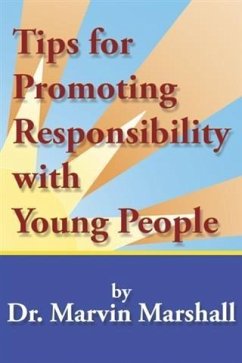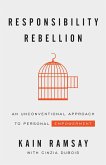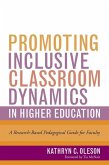This e-book contains 25 specific recommendations for promoting responsibility with young people from the ages of two years and older. Each page contains one specific technique that will show you how to have young people WANT to do what you would like them to do while at the same time reduce your stress, help you become more effective, and improve your relationships. Promoting responsibility in the young is something nearly every parent wants, yet few parents have a thorough understanding of how to achieve it. This publication shares specific approaches to promote responsible thinking and behaviors in young people of all ages. Traditional techniques of rewarding desired behaviors, of prompting fear by threatening or imposing punishments, and by "e;telling"e; all aim at obedience. With today's youth however, when the focus is on obedience, the result is often reluctance, resistance, resentment, and even rebellion. This sets up stress for both parent and child. As children grow, the more we try to force obedience the more they resist. However, when the focus is on responsibility, obedience follows as a natural by-product. Responsibility is promoted far more effectively when a parent is proactive, rather than reactive. Instead of waiting until an objectionable behavior occurs and then reacting to it, you can use the tips to prevent irresponsible behaviors from occurring in the first place. Even when an undesirable behavior does occur, you will be able to handle it immediately, without stress, and without negative feelings. Remember that we adults are constantly teaching and influencing. As a matter of fact, we cannot help but influence young people. We are often unaware of our constant role-modeling. This is especially the case when we react to what children do that does not please us. Reacting to irresponsible behavior by using coercive approaches is a primary cause of stress in parent-child relationships-whether we are telling them to do something, threatening, punishing, or attempting to manipulate their behavior with rewards. But what if you could influence the young to make better choices because they WANT to? And what if, when challenges do occur, you have an approach of placing the responsibility for self-correction on the youngster?When you aim at instilling a sense of responsibility, you will find young people developing self-discipline, developing respect for self and others, and becoming more mature in their behaviors. Additionally, you will quickly see how stress and adversarial relationships are significantly reduced. From my experiences of working with young people of all ages and in various situations and circumstances, I have learned that they really want to be responsible. When you start using the suggestions in this publication, you will find how easy it is to raise their expectations, empower them to higher standards, and watch their self-satisfaction and maturity grow. This publication highlights key points from the landmark education book, Discipline Without Stress How Teachers and Parents Promote Responsibility & Learning, the multiple award-winning book Parenting Without Stress How to Raise Responsible Kids While Keeping a Life of Your Own, and articles from the free monthly newsletter Promoting Responsibility and Learning.
Dieser Download kann aus rechtlichen Gründen nur mit Rechnungsadresse in A, B, BG, CY, CZ, D, DK, EW, E, FIN, F, GR, HR, H, IRL, I, LT, L, LR, M, NL, PL, P, R, S, SLO, SK ausgeliefert werden.









